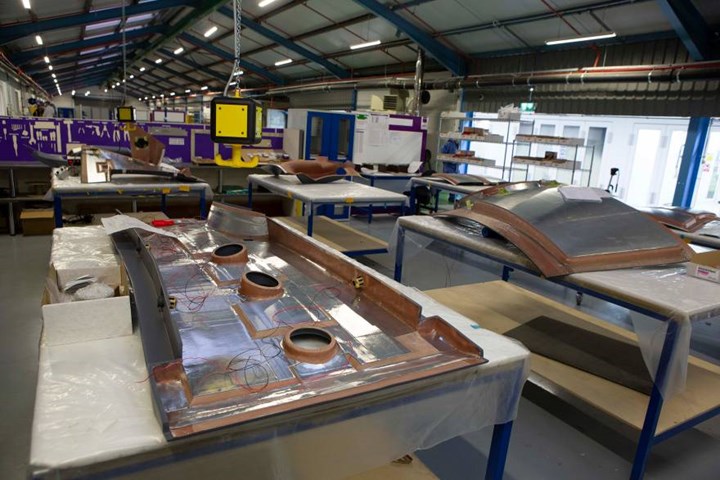Marshall Advanced Composites to supply C-130 composite cockpit trim panels
Five-year, £9.5 million contract with Lockheed Martin specifies honeycomb center console panels for C-130J Super Hercules airlifter.

Marshall Advanced Composites (York, U.K.) was formed when Marshall Aerospace and Defence Group (Cambridge, U.K.) bought Slingsby Advanced Composites in 2011. The company has signed a £9.5 million contract with Lockheed Martin (Bethesda, Md., U.S.) to manufacture and supply cockpit trim panels for its C-130J Super Hercules airlifter for the next five years.
“We are delighted to have received this five-year contract from Lockheed Martin,” said Carl Morse, Advanced Composites General Manage at Marshall Advance Composites. “It really is testament to the hard work of the team and strength of our partnership with Lockheed Martin. We’ve been supplying the panels for over 20 years and have historically been on a series of relatively short term contracts, however, our proven ability to drive cost out of the supply, outstanding on-time delivery record and appetite to innovate our processes has given our customer the confidence to make another long-term commitment.”
The panels are manufactured at Marshall’s composites facility in North Yorkshire from phenolic glass fiber sandwich panels with a Nomex honeycomb core, followed by finishing operations such as painting, electrical assembly and integration to provide Lockheed Martin with lineside kits of plug-and-play parts to their Marietta, Georgia facility in the U.S.
Panels are supplied in various sizes and complexity in kits of 14 or 18 panels to form the center console in the C-130 cockpit. Advanced Composites is part of Marshall Aerospace and Defence Group, which has been maintaining, repairing and overhauling C-130s for more than 50 years.
Related Content
-
Novel composite technology replaces welded joints in tubular structures
The Tree Composites TC-joint replaces traditional welding in jacket foundations for offshore wind turbine generator applications, advancing the world’s quest for fast, sustainable energy deployment.
-
Aviation-specific battery system uses advanced composites to address electric, hybrid flight
BOLDair’s composite enclosure, compression structures and thermal runaway management enables high-performance electric energy storage.
-
CirculinQ: Glass fiber, recycled plastic turn paving into climate solutions
Durable, modular paving system from recycled composite filters, collects, infiltrates stormwater to reduce flooding and recharge local aquifers.















